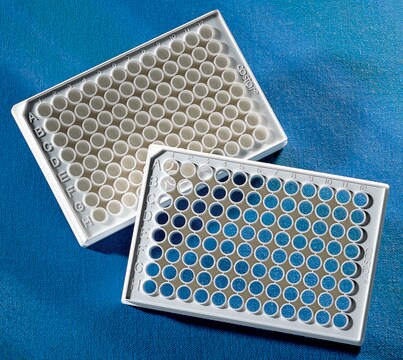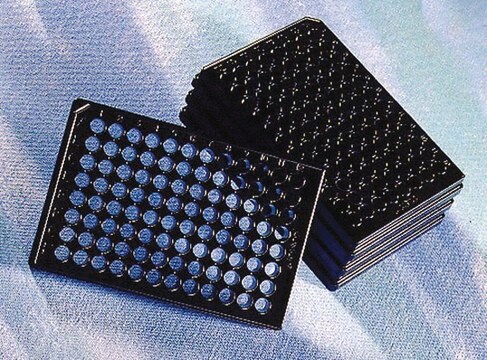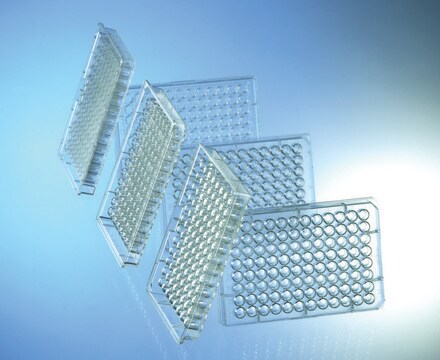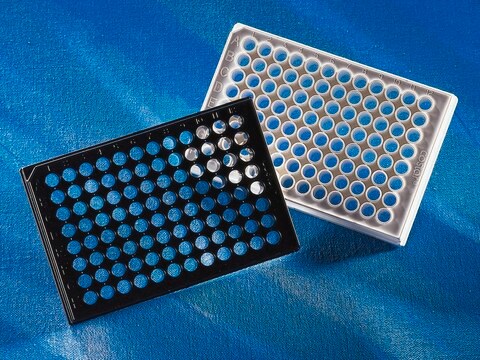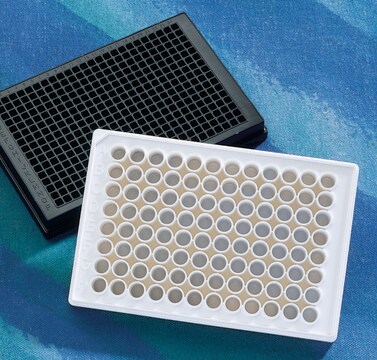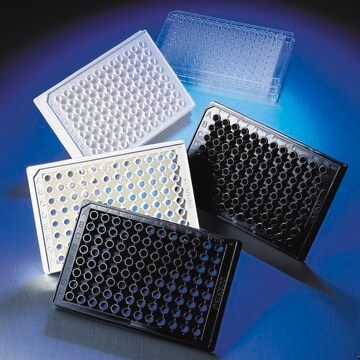CLS3904
Corning® 96 Well Black Polystyrene Microplate
flat bottom clear, black polystyrene, Tissue Culture (TC)-treated surface, bag of 20, sterile, lid
Synonym(s):
96 mulitwell plates, 96 well microplates, 96 well microtiter plates, 96 well plates
About This Item
Recommended Products
material
black polystyrene
clear bottom
flat bottom clear
polystyrene
sterility
sterile
feature
lid
skirt
plate format: 96 well standard
packaging
case of 100
bag of 20
manufacturer/tradename
Corning 3904
size
96 wells
surface area
0.32 cm2 , cell growth area
cell growth area
cell growth area
well volume
360 μL
well working volume
75-200 μL
color
black
suitability
suitable for (fluorescent/luminescent assays)
binding type
Tissue Culture (TC)-treated surface
Looking for similar products? Visit Product Comparison Guide
General description
- Corning® 96 Well Black Polystyrene Microplate have opaque black polystyrene walls to minimize well-to-well crosstalk and background fluorescence and/or luminescence.
- Optically clear flat well bottom permits direct microscopic viewing.
- Applicable for both top and bottom reading instruments.
- Nonreversible lids with condensation ring to reduce contamination.
- Non-Pyrogenic and sterilized by gamma radiation.
- Hydrophilic and negatively charged surface optimized for cell attachment and growth.
- Product does not contain materials of animal origin.
- Tested for the attribute of cell attachment and growth utilizing an attachment-dependent mammalian cell line.
Legal Information
Certificates of Analysis (COA)
Search for Certificates of Analysis (COA) by entering the products Lot/Batch Number. Lot and Batch Numbers can be found on a product’s label following the words ‘Lot’ or ‘Batch’.
Already Own This Product?
Find documentation for the products that you have recently purchased in the Document Library.
Customers Also Viewed
Our team of scientists has experience in all areas of research including Life Science, Material Science, Chemical Synthesis, Chromatography, Analytical and many others.
Contact Technical Service

